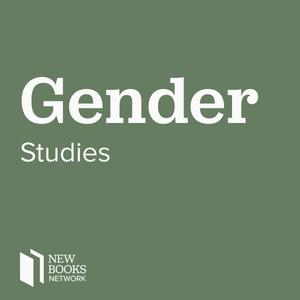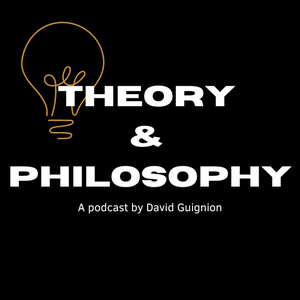
New Books in Gender
New Books Network
Interviews with Scholars of Gender about their New Books
- 47 minutes 15 secondsDan Archer, "Voices from Nepal: Uncovering Human Trafficking through Comics Journalism" (U Toronto Press, 2024)
How can we better protect survivors? How can we learn from their stories without causing further harm?
With a pen in one hand and watercolours in the other, graphic journalist Dan Archer embarks on an investigation into human trafficking and how comics can be used to empower survivors and raise awareness of human rights issues. Based on years of research and reporting, Voices from Nepal: Uncovering Human Trafficking through Comics Journalism (University of Toronto Press, 2024) holds a mirror up to the ways that international and local NGOs study and combat trafficking, reflecting on both the positive and negative impacts they can have.
Featuring interviews with trafficking survivors across Nepal, as well as former traffickers themselves, Archer dispels common misconceptions around labour trafficking, sex trafficking, organ trafficking, and more. Through a combination of live sketches, illustrated reportage, and visual testimonies, he champions the use of graphic journalism in human rights reporting and emphasizes the need for a survivor-centric approach to this work.
Carefully compiled and expressively illustrated, Voices from Nepal sheds light on an important issue while fostering a discussion about how we can improve the tools and methods we use to make change.
This interview was conducted by Dr. Miranda Melcher whose new book focuses on post-conflict military integration, understanding treaty negotiation and implementation in civil war contexts, with qualitative analysis of the Angolan and Mozambican civil wars.
Learn more about your ad choices. Visit megaphone.fm/adchoices
Support our show by becoming a premium member! https://newbooksnetwork.supportingcast.fm/gender-studies
31 January 2025, 9:00 am - 49 minutes 52 secondsWilton S. Wright, "Rewriting Resistance to Social Justice Pedagogies" (Lexington Books, 2024)
Resistance to feminist, queer, and antiracist pedagogies can take many forms in the composition class: silence during class discussion; tepid, bland writing that fails to engage with course content; refusal to engage with feminist and queer ideas; open and direct challenges to professors’ authority. According to Wilton Wright, Rewriting Resistance to Social Justice Pedagogies (Lexington Books, 2024) argues that composition studies has not adequately addressed the complex and deeply local contexts and causes of resistance. Therefore, the author argues that resistance research must first understand the origins and purpose for a student’s resistance, interrogating the language used to name and describe students who resist. Composition instructors must then give students the tools to uncover and investigate their reasons for resistance themselves, challenging students to continually interrogate their resistances. This book utilizes feminist composition pedagogies, masculinity studies, and queer pedagogies to engage student resistance in the writing classroom.
Michael O. Johnston, Ph.D. is a Assistant Professor of Sociology at William Penn University. He is the author of The Social Construction of a Cultural Spectacle: Floatzilla (Lexington Books, 2023) and Community Media Representations of Place and Identity at Tug Fest: Reconstructing the Mississippi River (Lexington Books, 2022). His general area of study is at the intersection of space, behavior, and identity. He is currently conducting research about the negotiation that humans make between oneself, identification of place, and the attachment/s they have to those places. To learn more about Michael O. Johnston you can go to his personal website, Google Scholar, Bluesky (@professorjohnst.bsky.social),Twitter (@ProfessorJohnst), or by email at [email protected]
Learn more about your ad choices. Visit megaphone.fm/adchoices
Support our show by becoming a premium member! https://newbooksnetwork.supportingcast.fm/gender-studies
30 January 2025, 9:00 am - 39 minutes 12 secondsMatthew McCormack, "Shoes and the Georgian Man" (Bloomsbury, 2025)
Shoes are everyday objects but they are loaded with meaning. Shoes and the Georgian Man (Bloomsbury, 2025) by Dr. Matthew McCormack reveals how shoes played a powerful role in the wider story of shifts in gender relations in 18th-century Britain. It focuses on the relationship of shoes with the body and its movements, and therefore how what we wear on our feet relates closely to social, occupational and gender roles. It also uses footwear to explore topics such as politics, war, dance and disability.
Thinking about shoes as material objects, Dr. McCormack studied historic shoes first-hand in museums, in order to ascertain their physical properties and what they would have been like to wear. Worn shoes preserve traces of the wearer's body in their indentations, stretches and scuffs, providing a unique primary source about their wearer. This approach forges new connections between the histories or material culture, gender and the body, and sheds new light on what it meant to be a man in the 18th century.
This interview was conducted by Dr. Miranda Melcher whose new book focuses on post-conflict military integration, understanding treaty negotiation and implementation in civil war contexts, with qualitative analysis of the Angolan and Mozambican civil wars.
Learn more about your ad choices. Visit megaphone.fm/adchoices
Support our show by becoming a premium member! https://newbooksnetwork.supportingcast.fm/gender-studies
24 January 2025, 9:00 am - 1 hour 10 minutesRyan Tan Wander, "Settler Tenses: Queer Time and Literatures of the American West" (Texas Tech UP, 2024)
In today’s cultural and political climate of relative LGBTQ+ inclusion, Settler Tenses: Queer Time and Literatures of the American West (Texas Tech University Press, 2024) by Dr. Ryan Tan Wander provides a literary history that rewrites our understanding of when and how queerness began to align with US nationalism and settler colonialism, tracing the discursive production of masculinities in late nineteenth and early twentieth-century literatures of the American West.
Current scholarly understandings often equate turn-of-the-century representations of the US frontier with hypermasculinity and heteronormativity. Simultaneously, scholars tend to view queer inclusion—that is, the civil and political inclusion of those who make up the “-Q+” of the initialism LGBTQ+—as a phenomenon of post–Civil Rights era activism. Settler Tenses provides a deeper history of queerness in US history by showing that literature created frontier masculinities that representationally yoked a range of queer bodies and subjectivities to national identity as the US consolidated its sovereignty in the late nineteenth and early twentieth centuries.
Reframing and explaining anew the provenance and significance of the links between queerness and US nationalism and settler colonialism, Settler Tenses will appeal to an audience of advanced undergraduates as well as researchers and scholars in American literary studies, gender, queer, and sexuality studies, settler colonial studies, and critical race and ethnic studies.
This interview was conducted by Dr. Miranda Melcher whose new book focuses on post-conflict military integration, understanding treaty negotiation and implementation in civil war contexts, with qualitative analysis of the Angolan and Mozambican civil wars.
Learn more about your ad choices. Visit megaphone.fm/adchoices
Support our show by becoming a premium member! https://newbooksnetwork.supportingcast.fm/gender-studies
23 January 2025, 9:00 am - 1 hour 15 minutesDanielle Bayard Jackson, "Fighting for Our Friendships: The Science and Art of Conflict and Connection in Women's Relationships" (Hachette, 2024)
Why are women's friendships so deep yet so fragile? Friendship coach and educator Danielle Bayard Jackson unpacks the latest research about women's cooperation and communication, while sharing practical strategies to preserve and strengthen these relationships.
Fighting for Our Friendships: The Science and Art of Conflict and Connection in Women's Relationships (Hachette, 2024) is one part textbook, one part handbook. Readers will not only learn what the latest research has to say about the mechanics of women's friendships, but they'll walk away with real-life solutions for the most common conflicts that arise in their platonic relationships.
Learn more about your ad choices. Visit megaphone.fm/adchoices
Support our show by becoming a premium member! https://newbooksnetwork.supportingcast.fm/gender-studies
21 January 2025, 9:00 am - 41 minutes 19 secondsCarol Cleaveland and Michele Waslin. "Private Violence: Latin American Women and the Struggle for Asylum" (NYU Press, 2024)
How the US asylum process fails to protect against claims of gender-based violence.
Through eyewitness accounts of closed-court proceedings and powerful testimony from women who have sought asylum in the United States because of severe assaults and death threats by intimate partners and/or gang members, Private Violence: Latin American Women and the Struggle for Asylum (NYU Press, 2024) examines how immigration laws and policies shape the lives of Latin American women who seek safety in the United States. Carol Cleaveland and Michele Waslin describe the women's histories prior to crossing the border, and the legal strategies they use to convince Immigration Judges that rape and other forms of "private violence" should merit asylum - despite laws built on Cold War era assumptions that persecution occurs in the public sphere by state actors.
Private Violence provides much-needed recommendations for incorporating a gender-based lens in the asylum process. The authors demonstrate how policy changes across Presidential administrations have made it difficult for survivors of "private violence" to qualify for asylum. Private Violence paints a damning portrait of America's broken asylum system. This volume illustrates the difficulties experienced by Latin American women who rely on this broken system for protection in the United States. It also illuminates women's resilience and the determination of immigration attorneys to reshape asylum law.
Learn more about your ad choices. Visit megaphone.fm/adchoices
Support our show by becoming a premium member! https://newbooksnetwork.supportingcast.fm/gender-studies
20 January 2025, 9:00 am - 1 hour 7 minutesMonica A. Hershberger, "Women in American Operas of The 1950s: Undoing Gendered Archetypes" (U Rochester Press, 2023)
The 1950s looks placid from the outside, but underneath that calm post-war exterior roiled the intellectual and activist beginnings of the political movements that tore through the 1960s and 1970s. In Women in American Operas of the 1950s: Undoing Gendered Archetypes (University of Rochester Press, 2023), Monica A. Hershberger considers the main female characters in four operas written in the 1950s: The Ballad of Baby Doe, Lizzie Borden, The Tender Land, and Susannah. For each work, Hershberger analyzes the historical context and musical treatment of these four characters, who are all stereotyped as the virgin or the whore, or sometimes even both. In an unusual and productive analytical choice, Hershberger also includes the interpretive decisions and perspectives of the sopranos who originated or popularized these four roles, rather than focusing exclusively on the scores and the views of the male creative teams that wrote the works. Several of the operas include instances of emotional abuse as well as gendered and sexual violence that have long been ignored or downplayed by opera scholars, but Hershberger does not shy away from these disturbing subjects in the book.
Learn more about your ad choices. Visit megaphone.fm/adchoices
Support our show by becoming a premium member! https://newbooksnetwork.supportingcast.fm/gender-studies
20 January 2025, 9:00 am - 1 hour 9 minutesEva Payne, "Empire of Purity: The History of Americans' Global War on Prostitution" (Princeton UP, 2024)
Between the 1870s and 1930s, American social reformers, working closely with the US government, transformed sexual vice into an international political and humanitarian concern. As these activists worked to eradicate prostitution and trafficking, they promoted sexual self-control for both men and women as a cornerstone of civilization and a basis of American exceptionalism. Empire of Purity: The History of Americans' Global War on Prostitution (Princeton University Press, 2024) by Dr. Eva Payne traces the history of these efforts, showing how the policing and penalization of sexuality was used to justify American interventions around the world.
Dr. Eva Payne describes how American reformers successfully pushed for international anti-trafficking agreements that mirrored US laws, calling for states to criminalize prostitution and restrict migration, and harming the very women they claimed to protect. She argues that Americans’ ambitions to reshape global sexual morality and law advanced an ideology of racial hierarchy that viewed women of color, immigrants, and sexual minorities as dangerous vectors of disease. Dr. Payne tells the stories of the sex workers themselves, revealing how these women’s experiences defy the dichotomies that have shaped American cultural and legal conceptions of prostitution and trafficking, such as choice and coercion, free and unfree labor, and white sexual innocence and the assumed depravity of nonwhites.
Drawing on archives in Europe, the United States, and Latin America, Empire of Purity ties the war on sexual vice to American imperial ambitions and a politicization of sexuality that continues to govern both domestic and international policy today.
This interview was conducted by Dr. Miranda Melcher whose new book focuses on post-conflict military integration, understanding treaty negotiation and implementation in civil war contexts, with qualitative analysis of the Angolan and Mozambican civil wars.
Learn more about your ad choices. Visit megaphone.fm/adchoices
Support our show by becoming a premium member! https://newbooksnetwork.supportingcast.fm/gender-studies
18 January 2025, 9:00 am - 55 minutes 46 secondsAmrita Narayanan, "Women's Sexuality and Modern India: In a Rapture of Distress" (Oxford UP, 2022)
Amrita Narayanan is a practicing Clinical Psychologist (Psy.D. 2007) and Psychoanalyst (Indian Psychoanalytic Society, 2019). She is the author of Women's Sexuality and Modern India: In a Rapture of Distress (Oxford University Press, 2023). She was the Editor of and essayist in The Parrots of Desire: 3000 years of Erotica in India (Aleph Books, 2018) a collection of poems, short prose and fiction in translation from Indian languages, linked by an introductory essay on the central themes in Indian erotic literature. She was an essayist for Pha(bu)llus: a cultural history of the Phallus (Harper Collins, 2020). Amrita is currently visiting faculty at Ashoka University where she teaches classes at the undergraduate and masters level.
Amrita's research interests are in cultural factors in psychotherapy and psychoanalysis, the psychodynamics of women's sexual agency, and how cultural factors shape the aesthetics of women's sexual agency. Her writing has appeared in academic journals such as Psychodynamic Practice and Psychoanalytic Review; newspapers such as The Hindu and The Indian Express; and popular press periodicals such as Outlook, Open Magazine India Today and The Deccan Herald. Amrita has received the Sudhir Kakar Prize for psychoanalytic writing, the Taylor and Francis Prize for Psychoanalytic writing, and the Homi Bhabha Fellowship.
The interviewer is Psychoanalyst and Writer, Ashis Roy, New Delhi.
Learn more about your ad choices. Visit megaphone.fm/adchoices
Support our show by becoming a premium member! https://newbooksnetwork.supportingcast.fm/gender-studies
18 January 2025, 9:00 am - 54 minutes 32 secondsEmily Murdoch Perkins, "Regina: The Queens Who Could Have Been" (The History Press, 2024)
What queens would England have had if firstborn daughters, not firstborn sons, had inherited the throne? In Regina: The Queens Who Could Have Been (The History Press, 2024), Emily Murdoch Perkins investigates.
We may think of princesses as dutiful and elegant, wearing long flowing dresses, but the eldest daughters of England’s kings have been very different. Political intriguers. Abducted nuns who demanded divorces. Murderers.
It’s time we rediscovered the politicians we lost, the masterminds we see negotiating nunneries not armies, the personalities shining brilliantly even hundreds of years later: the queens who should have been.
This interview was conducted by Dr. Miranda Melcher whose new book focuses on post-conflict military integration, understanding treaty negotiation and implementation in civil war contexts, with qualitative analysis of the Angolan and Mozambican civil wars.
Learn more about your ad choices. Visit megaphone.fm/adchoices
Support our show by becoming a premium member! https://newbooksnetwork.supportingcast.fm/gender-studies
14 January 2025, 9:00 am - 51 minutes 55 secondsNancy Reddy, "The Good Mother Myth: Unlearning Our Bad Ideas About How to Be a Good Mom" (St. Martin's Press, 2025)
Timely and thought-provoking, Nancy Reddy's The Good Mother Myth: Unlearning Our Bad Ideas About How to Be a Good Mom unpacks and debunks the bad ideas that have for too long defined what it means to be a "good" mom. When Nancy Reddy had her first child, she found herself suddenly confronted with the ideal of a perfect mother—a woman who was constantly available, endlessly patient, and immediately invested in her child to the exclusion of all else. Reddy had been raised by a single working mother, considered herself a feminist, and was well on her way to a PhD. Why did doing motherhood "right" feel so wrong?
For answers, Reddy turned to the mid-20th century social scientists and psychologists whose work still forms the basis of so much of what we believe about parenting. It seems ludicrous to imagine modern moms taking advice from midcentury researchers. Yet, their bad ideas about so-called “good” motherhood have seeped so pervasively into our cultural norms. In The Good Mother Myth, Reddy debunks the flawed lab studies, sloppy research, and straightforward misogyny of researchers from Harry Harlow, who claimed to have discovered love by observing monkeys in his lab, to the famous Dr. Spock, whose bestselling parenting guide included just one (1!) illustration of a father interacting with his child. This timely and thought-provoking book will make you laugh, cry, and want to scream (sometimes all at once). Blending history of science, cultural criticism, and memoir, The Good Mother Myth pulls back the curtain on the flawed social science behind our contemporary understanding of what makes a good mom.
This interview was conducted by Dr. Shui-yin Sharon Yam, author of the new book Doing Gender Justice: Queering Reproduction, Kin, and Care (Johns Hopkins University Press).
Learn more about your ad choices. Visit megaphone.fm/adchoices
Support our show by becoming a premium member! https://newbooksnetwork.supportingcast.fm/gender-studies
13 January 2025, 9:00 am - More Episodes? Get the App
Your feedback is valuable to us. Should you encounter any bugs, glitches, lack of functionality or other problems, please email us on [email protected] or join Moon.FM Telegram Group where you can talk directly to the dev team who are happy to answer any queries.
 Politics Theory Other
Politics Theory Other
 Theory & Philosophy
Theory & Philosophy
 New Books in Psychoanalysis
New Books in Psychoanalysis
 The LRB Podcast
The LRB Podcast
 New Books in Critical Theory
New Books in Critical Theory
 Jacobin Radio
Jacobin Radio